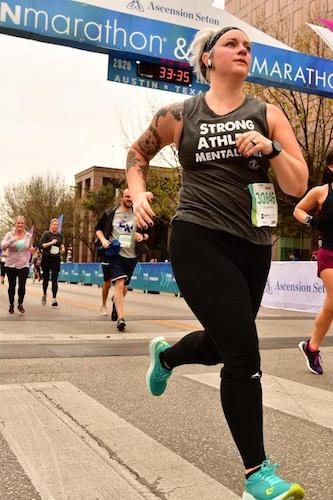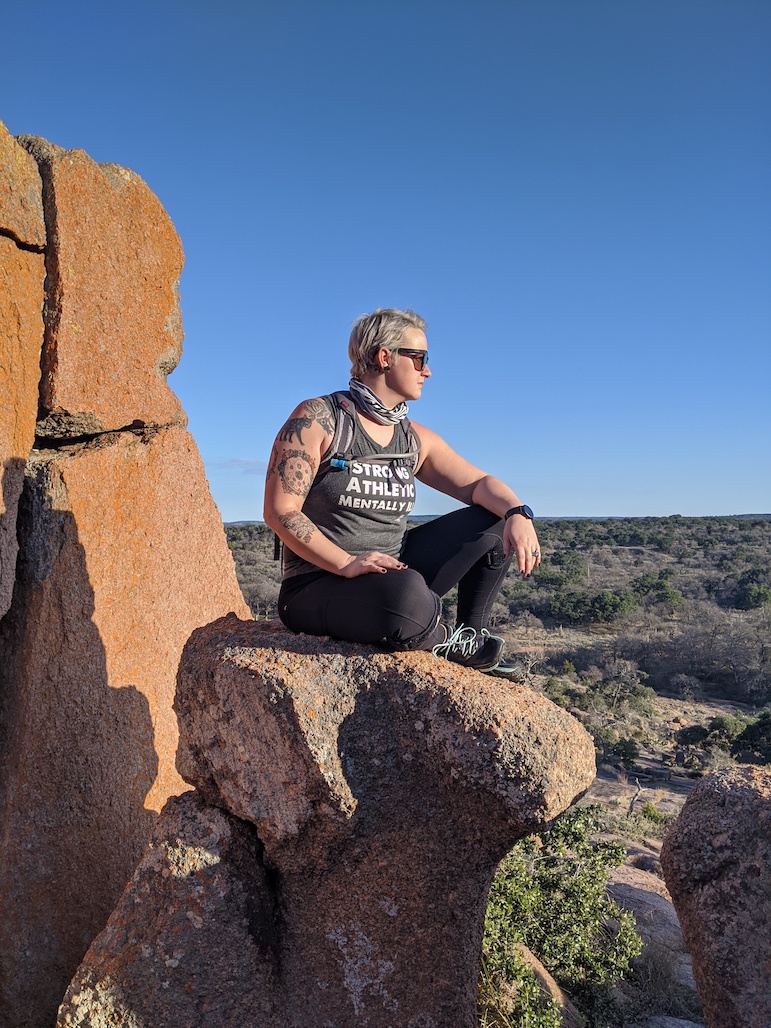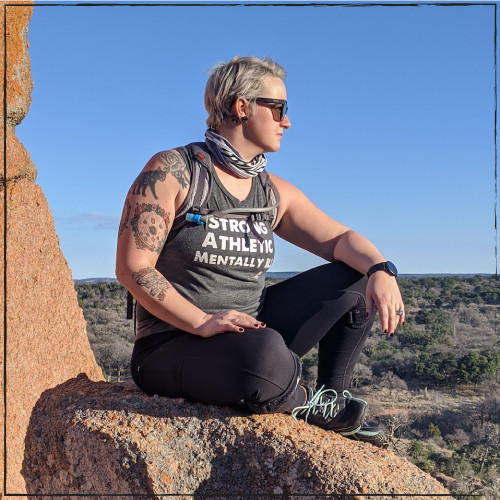Strong Athletic Mentally Ill
Posted by Kat Uhstrauphik on Apr 8th 2020
Mental illness is a loaded term. It often has negative connotations that make people really uncomfortable. People with mental illnesses are vilified and trivialized in the media. We are not villains. The daily struggle of having a mental illness is anything but trivial. Mental illness is a disability, and just like any other disability, it requires accommodation and compassion. Part of destigmatizing mental illness is by making it visible; we can’t normalize something if people don’t realize it is already all around them. Be seen, self-stigmatize, be confident: come out disabled.
I am bipolar, which is an especially “negative” illness. I am constantly learning how to navigate a world that is afraid of my brain. People fear me, think I’m unreliable, unstable, so I get pushed out and away. It hurts. But I have decided to continue “coming out disabled” because the stigma and negative treatment needs to stop. We need to learn to be compassionate toward people with all kinds of disabilities, including mental illness.

Physical activity has been a literal life saver. I am so much happier when I’m active. Physical health and mental health are inseparable. I started doing roller derby a couple years ago, and that got me moving. I started coming out of a long depression, but being open about my mental illness made some people uncomfortable. The stigma became an issue, and, unfortunately, I left team sports. But now I’m running--something I can do solo or with others. I just ran my first 5k and felt so accomplished. I never saw myself enjoying running, but I love it. Getting my body moving and clearing my mind help me cope with the daily struggles of being neuro-atypical, of not quite fitting into social norms. I’ve found really supportive people, including the lovely people at Strong Athletic who have helped me share my message.
It isn’t easy wearing a shirt that declares myself “Strong, Athletic, Mentally Ill.” I know I’m making people uncomfortable and inviting stigma, but that’s kind of the point. Face your discomfort and learn to be compassionate toward people who are different. Disability should not be a reason for anyone to stop participating in life. Find ways to help your friends with mental illness get involved in sports and exercise--or just be an open ear. You could be saving their lives.
I am strong. I am athletic. I have a mental illness. I will not apologize or be marginalized. I am going to continue growing as a person and athlete, no matter the stigma. I’m going to continue being an advocate. I will declare myself disabled because I hope that I can inspire people to talk about mental illness in positive ways, to share their stories, to learn how to truly accept each other. If you have a mental illness, I need you to know that you are strong.

Kat's General Advice for Coping During Quarantine:
1. Stay connected with friends and family through text, social media, and video chats (sometimes seeing peoples' faces is really important)
2. Reach out to any of the online therapy services. Click here to access a good list.
3. Exercise or stretch. Do yoga. Anything to keep your body and mind connected in a healthy way. I absolutely love this YouTube channel for doing yoga at home.
4. Journal. Especially when you're feeling lonely or isolated, journaling is one of the best (and free) ways to interact with your thoughts and emotions in a healthy way. There is power in the written word.
A Few Additional Notes from Kat:
You can find me on Instagram and Twitter at @wosbird. Feel free to reach out to me directly.
NAMI.org is a great place for resources. They're national, and they can help people find local resources. This guide is one they're providing specifically during this pandemic.


